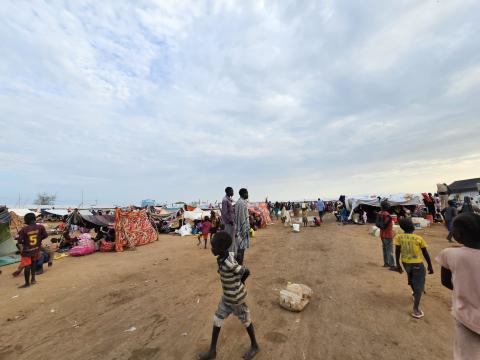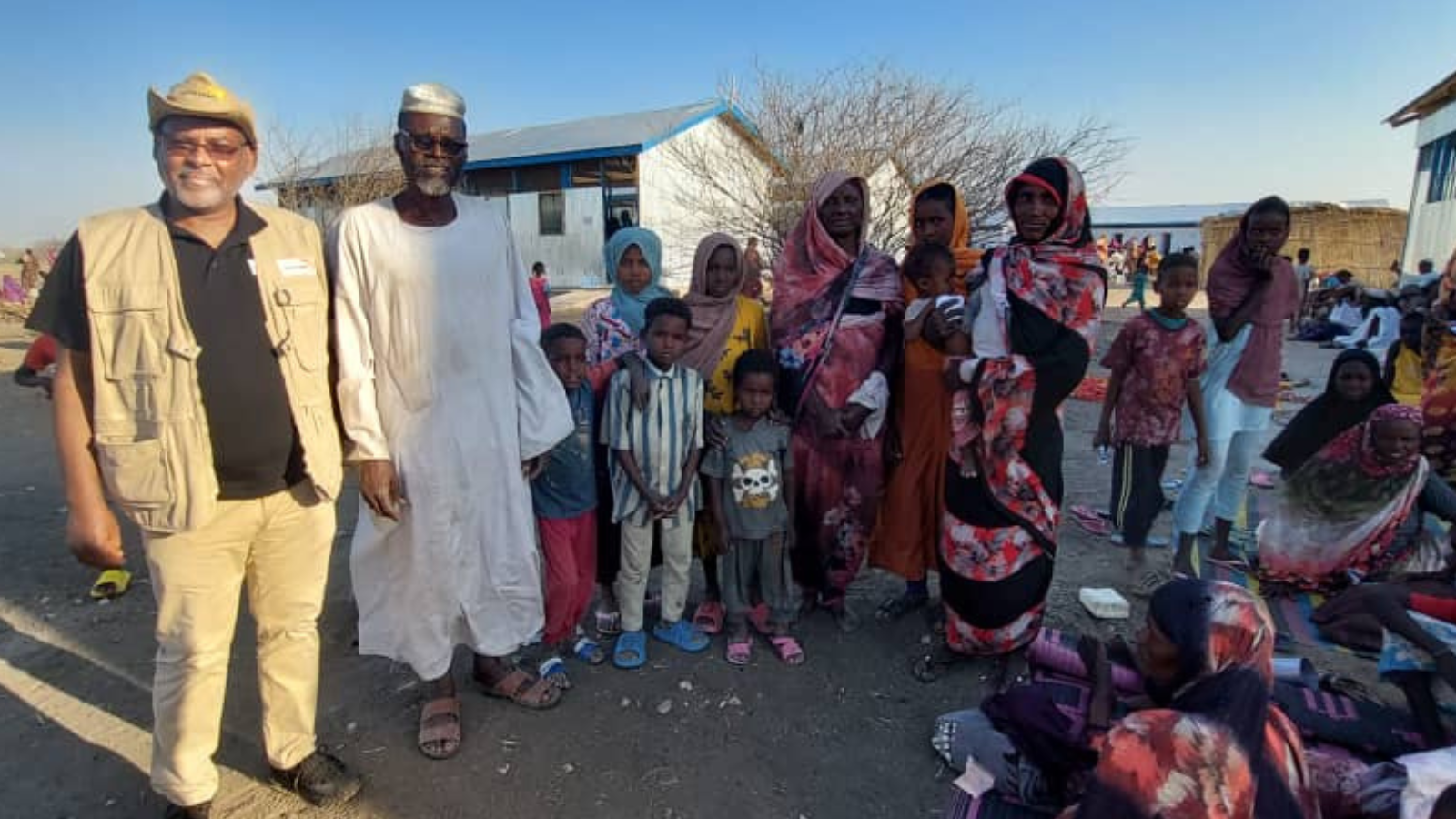Displaced and distraught, multiple generations pay the cost of conflict in Sudan

Dr. Mesfin Loha, World Vision South Sudan Country Director, shares his encounter with a Sudanese refugee family while visiting the transit center for displaced people in Renk county that is currently hosting at least 1,000 new arrivals daily.
23 January 2024 – This week, I am in Renk, a county near the border with Sudan where the humanitarian needs continue to swell. At the refugee transit center, I met 55-year-old Ali Mohamed, who recently left home with his family to become a refugee. They were among the latest arrivals at the center. Meeting Ali and hearing his story of survival made me reflect on what a father would do to protect the ones he love. His story also made me reflect on my own personal resilience, determination, and courage to lead in situations that are overwhelming and challenging. It was a soul-crushing story and allow me to share his story with you.
The fighting between the warring factions extended to Wad Madani area in mid-December 2023, erupting into widespread violence. Wad Madani is the capital of the Al Jazirah state in east-central Sudan and lies on the west bank of the Blue Nile. Wad Madani used to be the refuge of those affected and displaced by the violence in Khartoum. Now, residents of Wad Madani are leaving their homes.
Ali had never traveled far out of his home in Wad Madani, Sudan. But the escalating violence in Wad Madani left Ali with no choice but to go. He described the situation in Wad Madani as desperate and felt that he and his family had to flee to survive. "Everyone was leaving; organizations were closing offices. I had to keep my family safe. Staying in our home was no longer an option. I had to leave with my two wives, nine children, and my father. We are a family of 13," he said.

It was a tough call for Ali, especially since he had to convince his 81-year-old father about his decision. "I will never forget how my father was devastated when it was finally time to leave. We have to abandon our home, belongings, and all memories for the sake of our children."
The UN OCHA estimates that at least half a million people have been affected by the fighting in Al Jazirah State since 15 December and more than half of this number were 'subjected to first-time displacement.' Ali and his family were among those 'first-timers.' With the help of a friend who was a truck driver, Ali was able to arrange a mini-bus to transport them to the South Sudan border.
Ali carries his beneficiary ID card at the transit center issued by UNHCR, punched on number 13, indicating his family size. He hopes they will receive some food and the children will get treatment for the cough they are suffering from. "It is a decision I will not regret as long as my children are safe and have a future. I hope that one day we will go back home. Here at the transit center, life is not easy, but at least my children are no longer fearful of impending fighting or gunshots. My 12-year-old son, Yahya, can play football with other boys, and I am happy for him."
Since the conflict erupted in Sudan nine months ago, over 7 million people have fled their homes, 'many of them moving repeatedly to find safety,' according to UNHCR. Over 500,000 people have sought refuge in South Sudan and this number continue to grow. Stories of despair like that of Ali represent the psychological status of many of the displaced persons. Children have lost friends, family members, and their childhood playgrounds, whatever that was. The young seem to be bewildered, and the elderly are inconsolable.
Providing humanitarian assistance is not enough. More needs to be done to stop the conflict.